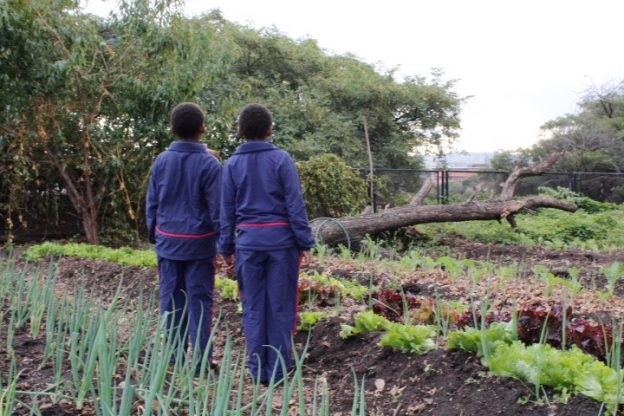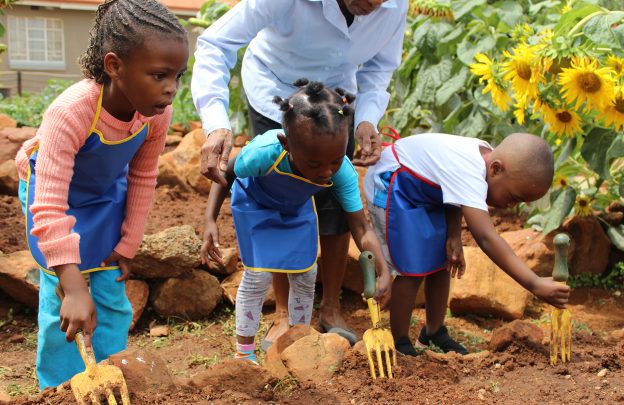FILL A TUMMY AND HELP END HUNGER THIS WORLD HUNGER DAY
Some quick facts
- 4 children will die from severe acute malnutrition today in South Africa.
- Approximately a third of children in Gauteng are stunted as a result of chronic malnutrition.
- In 2017, we served 753 195 meals to our young people, and distributed over 2000 food parcels to families in need.

About the Nutrition and Food Security Services Programme
Afrika Tikkun is working on eradicating child poverty and youth unemployment through its Nutrition and Food Security Services (NFSS) programme. While finding work that young people can thrive in is the ultimate goal, NFSS forms an essential part of a basket of services given to young people and their families from the age of 3, throughout the lifespan of their youth. By implementing this programme, the organisation ensures that food insecurity does not impede the education and development of young people at any stage.
We operate in some of South Africa’s most impoverished townships. Studies reveal that unemployment levels are reported to be at about 54% (among the potential labour force), with 73% living below the poverty line.
Children in the Early Childhood Development programme receive four meals a day – two full meals, and two healthy snacks. Young people taking part in after-school programmes are served the equivalent of supper, later in the afternoon. Staff, who are from the local community, also receive full meals. Furthermore, families of children at the Centre who are in a place of need receive food parcels and lunch boxes until they are able to stand on their own.
According to Makwena Ramoroka, social worker at Afrika Tikkun, even though children in primary and high school do get government feeding in school on a daily basis, “You would find that, that will be their only meal for the day, and after that meal, one still needs to have supper,” said Ramaroka. When these children get home there will be no supper, “and if there is no supper they will find ways to survive that may increase their vulnerability, hence we saw a need to assist,” he said.
“As long as you are registered in any of our core programmes, when you come in you get your meal,” said Ramoroka. Explaining how the food menu is developed, Ramaroka said, “the menu is developed by dieticians who work very closely with our Primary Health Care (PHC) programme.”
The PHC nurse and the dietician work on the children’s body mass index (BMI) and from that they develop the menu or update where there is a need to do so. Over time, a child’s BMI will indicate the impact of nutrition on conditions like wasting, stunting and malnutrition.
Child hunger is a stark reality for children in South African townships, and attending to this challenge is of the utmost important if we want this generation to grow, learn and one day fulfill their potential. In order to keep the children healthy, the center does not have vendors within or near their premises.
In addition to the meals, the staff and learners are shown the principles of vegetable gardening based on “Food and Agriculture Organization of the United Nations – A Vegetable Garden for All” campaign.
The garden plays a pivotal role in producing fresh vegetables for the centre ensuring that children attending Afrika Tikkun’s programmes eat healthy food. In addition unemployed Parents working on the gardens are allowed to take home vegetables to feed their families.
The organisation plants following a planting chart developed by the NFSSS team. The chart helps you to know the right time to plant and to harvest.
Looking at the planting chart, one can notice that the plants planted currently in the garden are those on the planting chart which is cabbage, onions, carrots, beetroot etc. One parent of the beneficiaries, Gladys Chauke expressed her appreciation of the programme and welcomed the initiative to give parents space in the garden to plant vegetables.
Donate Now
[envira-gallery id=”4368″]



